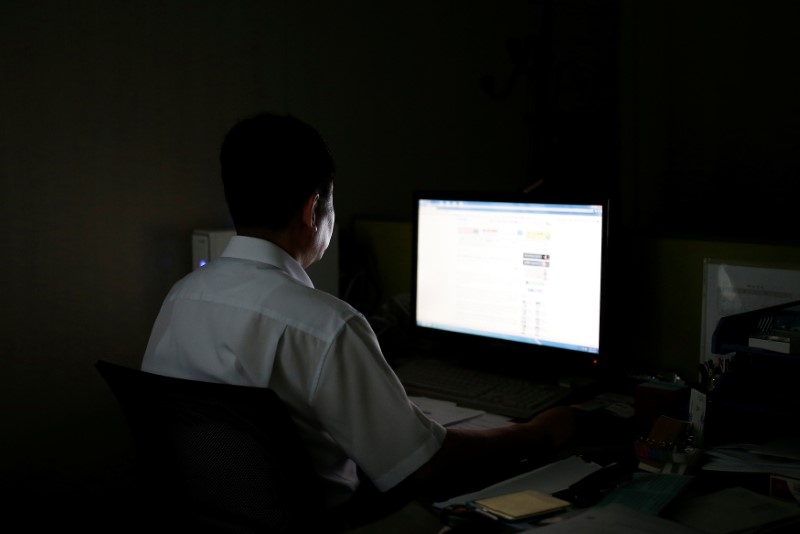By Ju-min Park
SEOUL (Reuters) - As the United States and other nations grasp for new ways to sanction Pyongyang in response to its latest nuclear test, some North Korean defectors see investment in its rudimentary market economy as a way to foment gradual change from within.
One defector living in South Korea uses a clandestine funding channel to send hundreds of thousands of dollars to help dozens of North Koreans open small businesses, such as noodle shops and grocery stores.
Last year, he shipped more than 3,000 Chinese LED desk lamps, chargeable with 12-volt solar panels, to three North Korean entrepreneurs. The defector, who escaped through China in the early 2000s, has also sent acupuncture needles, handbags, hair dye, vitamins and lingerie procured cheaply or through donations.
Under Kim Jong Un, North Korea has allowed a growing number of semi-legal markets known as jangmadang, where individuals and wholesalers buy and sell goods they have produced themselves or imported from China.
The markets have improved the quality of life for many but also makes them less reliant on the Soviet-style planned economy, undermining the power of the state. Markets also facilitate trade of contraband foreign media through USB sticks and DVDs.
"The North Korean business owners I am helping can be an alternative group to build sound capitalism," said the defector, who is in his 40s and declined to be named fearing for his safety and that of his partners in the North.
The defector, who does not seek a profit, said he has financed several grocery stores with investments of 20,000 to 30,000 yuan ($3,000 to $4,500) in rural towns, and more in Pyongyang.
'JANGMADANG GENERATION'
A South Korean government-commissioned report last year proposed nurturing North Korean private businesses as a way to drive reform. The plan, which is not government policy, envisions microfinance for start-ups and partnerships with big South Korean firms.
Contact with anyone in the South, however, can be punishable by death in North Korea. That's because the 1950-53 Korea War ended in a truce instead of a peace treaty, leaving the two Koreas in a technical state of war the past six decades.
South Korea also forbids its citizens from trading with the North but turns a blind eye to remittances estimated at $10 million a year sent to relatives by many of the nearly 30,000 defectors in the South.
Hong Soon-jick, a research fellow at state-run Korea Institute for National Unification, said defector financiers can use the same funding routes.
"This can accelerate marketization and circulation of information," he said. "But there are political risks, so these transactions should be done secretly, even if South-North Korea relations improve."
The approach is a departure from the distribution of leaflets and USB sticks and radio broadcasts that are more typically used by anti-regime activists in the South to win the hearts and minds of North Koreans.
In a similar vein, the U.S. State Department recently sought proposals to fund projects aimed at promoting democracy in North Korea and encourage young defectors living in the South and who grew up among the "jangmadang generation" to reach out to young North Koreans.
CHINA BANKS
One such young defector, Seoul-based activist Ji Seong-ho, has been sending funds of $300 to $500 at a time for North Koreans to open food stalls and crop-lending businesses in rural areas.
"The bigger markets grow, the weaker the regime gets, so we need to support North Korean entrepreneurs," said Ji, 34, who heads Now, Action and Unity for Human Rights (NAUH), which tries to help North Korean refugees in China to defect.
Surveys of defectors by Seoul National University found that the biggest challenge for North Koreans doing business was funding, followed by bribes paid to authorities and occasional crackdowns on market activity.
The first defector, who uses a clandestine money channel, typically works with middlemen who wire money to banks in China, where it is collected by agents and carried across the border.
He vets prospects through his relatives and acquaintances.
A few years ago, he sent several North Koreans cupping therapy machines, used in Chinese medicine, which he bought in the South for around $20 dollars each. They sold at a mark-up of more than three times in North Korea.
His brokers on the ground send photographs to him of businesses the defector has funded, using cellphones connected to China's mobile network.
The defector's secret project started in 2006 when he bought a used 2.5 tonne truck in China for 5 million won ($4,550) and sent it to a North Korean who then used it to make a living carrying goods.
In 2014, a deep-pocketed sponsor the defector declined to identify began supporting his effort.
He tells the North Koreans he helps "not to be greedy, help other poor North Koreans and gain respect," he said. "This is maybe more effective than thumb drives, because it directly supports livelihoods."

($1 = 1,114.9000 won, $1 = 6.6680 Chinese yuan)